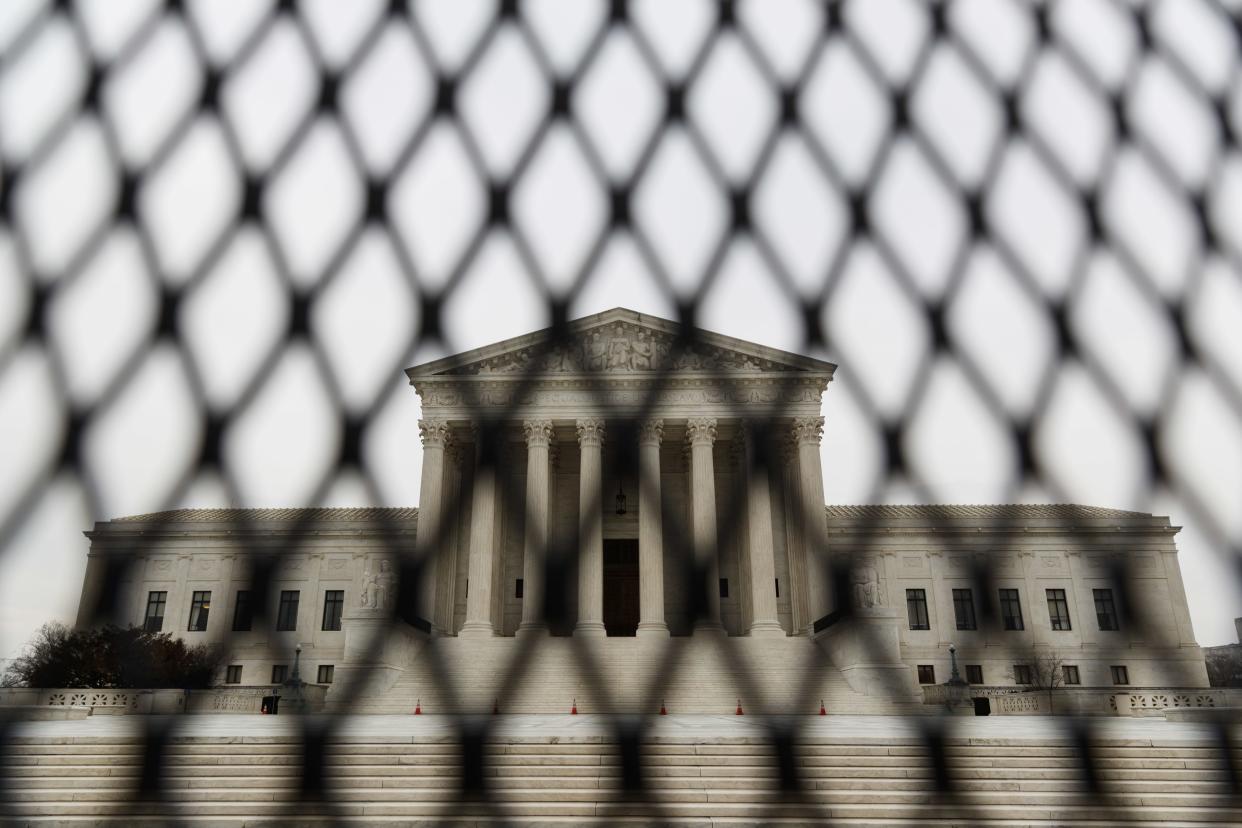Supreme Court to Boost Security Steps as Roe v. Wade Leak Probe Is Inconclusive

(Bloomberg) -- The Supreme Court may have been unable to identify the source of a leaked draft opinion on abortion rights, but officials want to prevent a repeat and have increased security over sensitive documents.
Most Read from Bloomberg
Holmes Belongs in Prison, Not $13,000-a-Month Manor, US Says
Google to Cut 12,000 Jobs in 6% Reduction of Global Workforce
Stocks Bounce Thanks to Tech Rally, Fed Comments: Markets Wrap
Chief Justice John Roberts has asked for a “comprehensive review” of the court’s information and document practices and an outside expert recommended limiting the distribution of hard-copy opinion drafts as well as the dissemination of sensitive information via email and mobile devices.
Those are among the measures recommended by Michael Chertoff, the former Homeland Security Secretary and federal appeals court judge who was brought in to review the Supreme Court Marshal’s investigation. Chertoff clerked for one-time Supreme Court Justice William Brennan.
Chertoff also recommended that the court utilize “information rights management” tools to control the use and sharing of sensitive information.
“While there is not sufficient evidence at present for prosecution or other legal action, there were important insights gleaned from the investigation that can be acted upon to avoid future incidents,” Chertoff wrote.
The report notes that an investigation is currently ongoing to prevent future incidents and that many of the potential updates “are underway and will be completed as soon as practicable.”
But the report does point some blame at the court’s aging computer systems and practices, noting that “the existing platform for case-related documents appears to be out of date and in need of an overhaul.” Investigators also were unable to glean much from examining courthouse printers because they have limited tracking capabilities and several were not even connected to the court’s networks.
Security Gaps
“If it was a court employee, or someone who had access to an employee’s home, that person was able to act with impunity because of inadequate security with respect to the movement of hard copy documents from the court to home, the absence of mechanisms to track print jobs on court printers and copiers, and other gaps in security or policies,” the report said.
Loyola Law School Professor Jessica Levinson said the fact that there haven’t been similar leaks in the past has less to do with the court’s antiquated security measures, and more to do with norms within the building.
“It is hard for those outside to understand how much privacy and discretion is prized within the judiciary,” Levinson said.
Justice Clarence Thomas’ former clerk Carrie Severino said it is hard to know if there will be similar leaks in the future, or if this was just a “one-off” given the extraordinary implications of the Dobb’s decision.
But pointing to Bush v. Gore, which determined the outcome of the contested 2000 presidential election, and the fact that there were no leaks there despite the stakes, she said there are indications that something has shifted.
“Time will tell if the court can rebuild that trust,” Severino said.
(Updates with outside comments.)
Most Read from Bloomberg Businessweek
Fake Meat Was Supposed to Save the World. It Became Just Another Fad
The Coyotes Working the US Side of the Border Are Often Highly Vulnerable, Too
What Tech Job Cuts Say About Silicon Valley—and the Rest of the Economy
©2023 Bloomberg L.P.


